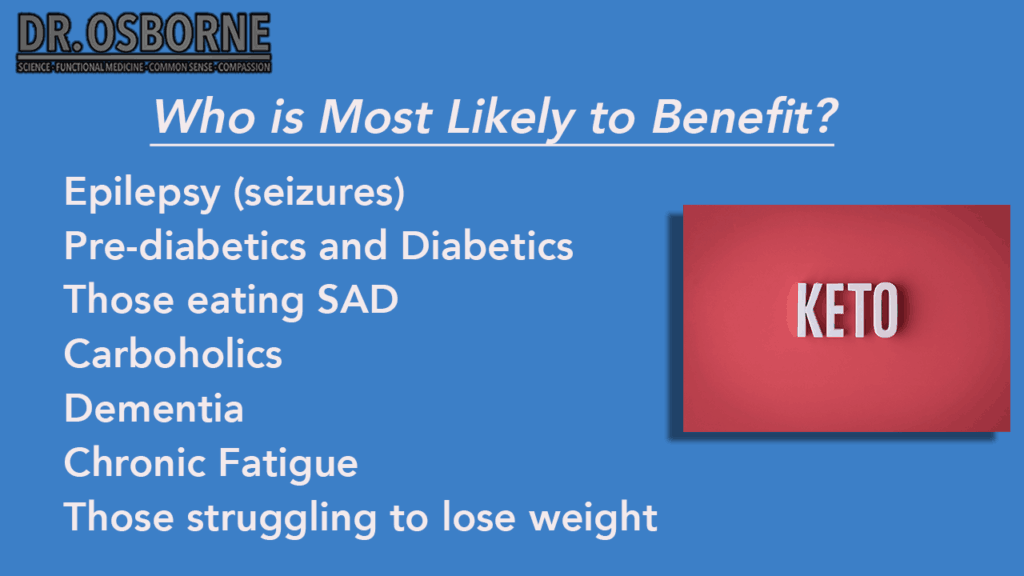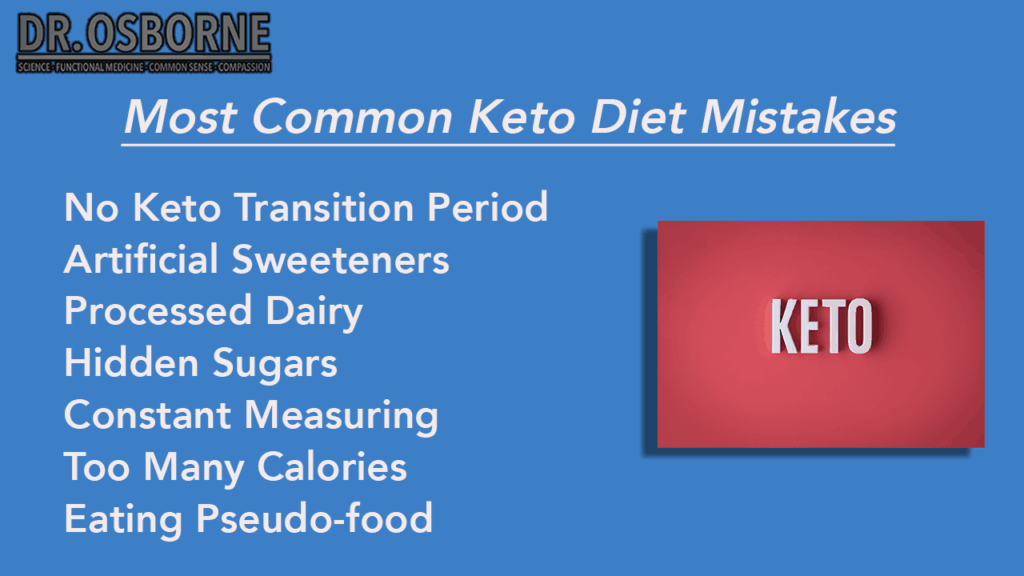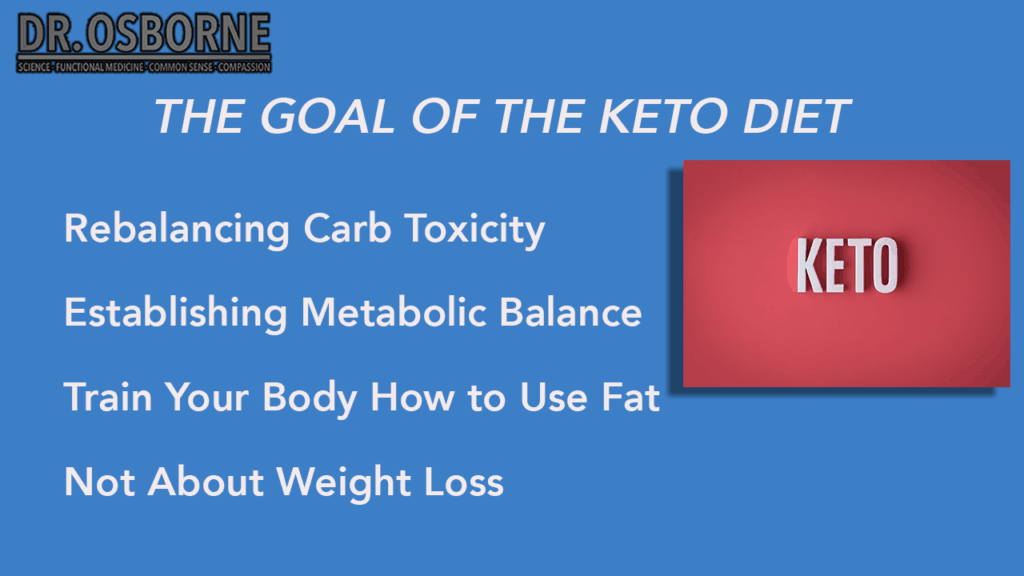By now, you have either heard of the Keto Diet, tried it for yourself, or know someone who has, mostly with great success. This new fad has taken the dieting realm by storm, with shows, cookbooks, blogs, and podcasts dedicated to this as a new way of life. But while the results are impressive, is this diet really realistic and beneficial in the long term?

What is the Keto Diet?
To really understand the Keto diet, it’s important to know how the diet originated. Not that long ago, several health experts were touting the negative effects of too much fat in the every-day diet. This prompted many food brands to produce low-fat/no-fat products leading to an all-out obsession. As many Americans started to reduce the amount of fat in their diet, they increased their intake of carbohydrates leading to carbohydrate toxicity.
In recent years, it has been revealed that a high carbohydrate diet is just as detrimental, if not more so, as a high-fat diet. This revelation started to cause a shift in thinking leading to the Keto, or Ketogenic, Diet. Originally prescribed to help those with neurological diseases, such as epilepsy, this diet reduces the number of carbohydrates one consumes to as little as 50g per day while increasing the fat and protein content.
How It Works
While a diet high in fat seems counterintuitive, it makes a great deal of sense once the science behind it is understood. When a person consumes high levels of carbohydrates, these can be used for energy. However, carbohydrates that are not completely used up are turned into triglycerides and get stored in the body as fat around the heart, abdomen, and liver.
When the diet is switched to consuming no more than 50 grams of carbohydrates in a day, the body enters a state of ketosis. Ketosis is reached as the body begins to break down fat-releasing ketones, rather than breaking down carbohydrates or glucose. Fat is only broken down once the body has run out of glucose, but is a great source of energy for the brain, liver, and muscle function.
Who Benefits from the Keto Diet?

While this type of diet is recommended for those experiencing epilepsy, it can also be beneficial for several groups facing degenerative diseases. This includes those who have Type 2 Diabetes, are prediabetic, have hyperglycemia, Alzheimer’s, dementia, ALS, MS, high blood pressure, heart disease, migraines, and even cancer.
A high carbohydrate diet or carb toxicity is extremely dangerous for many reasons. High carb intake not only increases insulin and insulin resistance, but it increases cholesterol, blood pressure and ultimately the risk of chronic disease. It can also produce non-alcoholic fatty liver disease and intestinal yeast overgrowth, causing damage to the liver and gut.
Keto Diet Mistakes

While the Keto diet may seem simple, it’s easy to make mistakes, leading to poor results, or giving up on it altogether. The first mistake Keto dieters make is jumping right into it. Those who don’t wean themselves off of carbohydrates may experience the Keto-Flu, consisting of fatigue, muscle aches, and headaches.
Another mistake that beginners make is chronic measuring, leading to obsession, and ultimately stress. Stress impacts the body causing insulin resistance and impedes the results of the Keto diet. Instead of worrying over measurements, be aware of calories and always choose whole, clean foods, always referencing the ingredients.
Choosing the Wrong Foods
Another mistake new Keto dieters make is choosing the wrong type of food. With the Keto Diet being all the rage, food companies are jumping into the game and creating an easy meal and snack options. While this may seem convenient, they are often loaded with artificial sugars that can impact insulin and hinder the ability to generate energy from fat.
Many on the Keto diet also choose to eat dairy, and while allowed, it can cause major inflammation in the body. It contains lactose which ultimately is sugar and some dairy is even linked to autoimmune diseases. If wanting to consume dairy on the Keto Diet, or in general, choose dairy from cows that are grass-fed, free-range, and a-1 homogenized.
It’s Not a Lifestyle Change

Unless ordered by a doctor, the Keto Diet should not be considered a lifestyle change. It is as its name suggests, a “diet,” that should be used temporarily. The body, in a constant state of Ketosis, will develop fat toxicity, similar to carb toxicity, when consuming too many carbohydrates.
It is best to find a balance and get equal calories from macronutrients which are fats, proteins, and carbohydrates on a regular basis. Carbohydrates are not the enemy, just like fat and protein are not the enemies. However, too much of a good thing can be detrimental.
Keto Diet Goals

When starting any diet, it’s important to have the right goals and expectations in place prior to beginning. With the Keto Diet, weight loss is an excellent benefit, but the real priority should be overall health and wellbeing.
Not only does the Keto Diet help reverse diseases, but it provides better brain focus and energy. Additionally, and maybe most importantly, it provides a metabolic balance. An out of balance metabolism affects the bloodstream, as well as hormones and proteins, changing their structure, shape, and ultimately their function.
It’s Worth a Shot
With a society reaching nearly a 70% obesity level, the Keto Diet may prove to be a useful tool in retraining the body to use fat as a fuel rather than carbohydrates. Some studies suggest that fat is an even better fuel source for the heart, mind, and liver. Additionally, the body needs healthy fat stores for vitamins A, D, E, and K, as well as Omega fats three, six, and nine to heal and repair itself.
Furthermore, switching to a Keto Diet could reveal issues that may have not been previously known. For example, those with an unknown gluten sensitivity or an autoimmune disease will find that cutting out carbohydrates reduces inflammation, provides relief, and a greater sense of well-being. It may take some discipline to really cut back on carbohydrates, but to improve health, defeat diseases, and increase energy, it may be well worth it.
One Response
Individuals with Parkinson’s disease may also benefit from a ketogenic diet.
I was amazed to see significant results for an individual who is using a ketogenic diet.
Search for this term in youtube to watch a video concerning his remarkable experience:
“Keto Diet & Parkinson’s Disease with William Curtis”
I’ve been on a strict “keto” diet for 5 years now, and am in better shape now (both mentally and physically) at 63 years old than I was at 32 years old.
Good luck to all